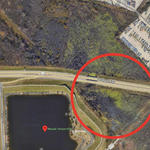| |
| |
|
The 411 for Water Treatment Professionals
|
|
|
|
|
| |
| |
| |
|
A Major Water Leak Has Created a Swamp in the Great Trinity Forest
|

Alexander Neal’s three-minute video of his kayak trip to what he calls Dallas’ “Blue Hole” isn’t the usual thing that attracts a lot of attention on TikTok. But the video has earned thousands of eyes across Dallas’ many social media platforms. “What if I told you that all the water in this swamp was coming from a broken water main leaking treated drinking water from the city of Dallas, and it was flooding hundreds of acres of our floodplain forest in the Great Trinity Forest?”
|
|
| |
|
Missouri May Allow Meatpacker to Release Wastewater Into Already-Impaired River
|

A southwest Missouri river already contaminated with E. coli could soon receive up to 350,000 gallons of wastewater daily from a meatpacking facility. And while the facility is expected to treat the wastewater for contamination before releasing it, critics of the proposal are worried about the operators’ history of violations at the site. “It would be even worse than what they were currently doing — discharging it on land,” said Marisa Frazier, of the Missouri chapter of the environmental nonprofit Sierra Club.
|
|
| |
|
|
| |
| |
| |
|
City Buses Could Be Powered by Sewer Fat Biofuel
|
A water company hopes to use the fat which usually clogs its sewer network to power buses in the city. Fat, oil and grease (FOG) from participating food outlets in Brighton and Hove will be delivered to Southern Water’s treatment works where it will be mixed with FOG removed from wastewater and turned into a biofuel. The company is targeting restaurants which collect FOG in their fat traps, rather than pouring it down the sink, which it says will expose those not using the traps, leaving them open to prosecution.
|
|
| |
|
King County Council Targets “Forever Chemicals” in Wastewater
|
Following a December 2022 report that found an increasing number of “forever chemicals” in King County’s wastewater being discharged into Puget Sound, King County Councilmembers Jeanne Kohl-Welles and Claudia Balducci introduced legislation aiming to reduce the runoff of those chemicals now shown to impact the region’s entire marine food chain, including chinook salmon, the main prey of endangered southern resident orcas.
|
|
| |
|
|
| |
| |
| |
|
Wastewater Treatment Plants Leverage Infrastructure to Drive Down Emissions
|
Wastewater treatment generates about 20 million metric tons of CO2 equivalent in the U.S. every year. A few water utilities are offsetting some of those emissions by leveraging their existing infrastructure to turn food waste that would otherwise be landfilled into renewable natural gas (RNG). Victor Valley Wastewater Reclamation Authority (VVWRA) is the first facility of its kind in California to go this route.
|
|
| |
|
How Blockchain Technology can Improve Drinking Water Treatment Systems
|
Blockchain technology, a digital ledger system that records transactions across multiple computers, has been making waves in various sectors, from finance to healthcare. Recently, its potential impact on drinking water treatment systems has come under scrutiny. Experts believe that the integration of blockchain technology into these systems could significantly enhance their efficiency, transparency, and reliability.
|
|
| |
|
LSU Research Group Studying Water Treatment Method for Industrial Usage
|
An LSU research group is making breakthroughs in perfecting a method of water treatment for use in many industries that call Baton Rouge home. The research group, led by civil and environmental engineering assistant professor Kofi Christie, is researching the use of membrane distillation, or MD, as a means of water purification. The treatment can be applied to a wide range of water sources including seawater, inland brackish water and municipal and industrial wastewater, according to a news release from LSU.
|
|
| |
|
IAEA Report on Fukushima Waste-Water Is Wrong Says Nuclear Scientist
|
The International Atomic Energy Agency’s report on Japan’s planned discharge of nuclear-contaminated water into the Pacific Ocean is wrong, a Pakistani nuclear scientist says.“I think it’s a very favorable treatment to Japan by the IAEA,” Zafar Koreshi, dean of graduate studies at Air University Pakistan, said in an interview with Xinhua News Agency. “It ignored the interests of the local people who are affected by this and of the regional countries who are going to be affected by this.”
|
|
| |
|
|
| |
|
|